I’m Your Moon the Series rekindles a forbidden love that defies time, family expectations, and the rules written to keep hearts apart.
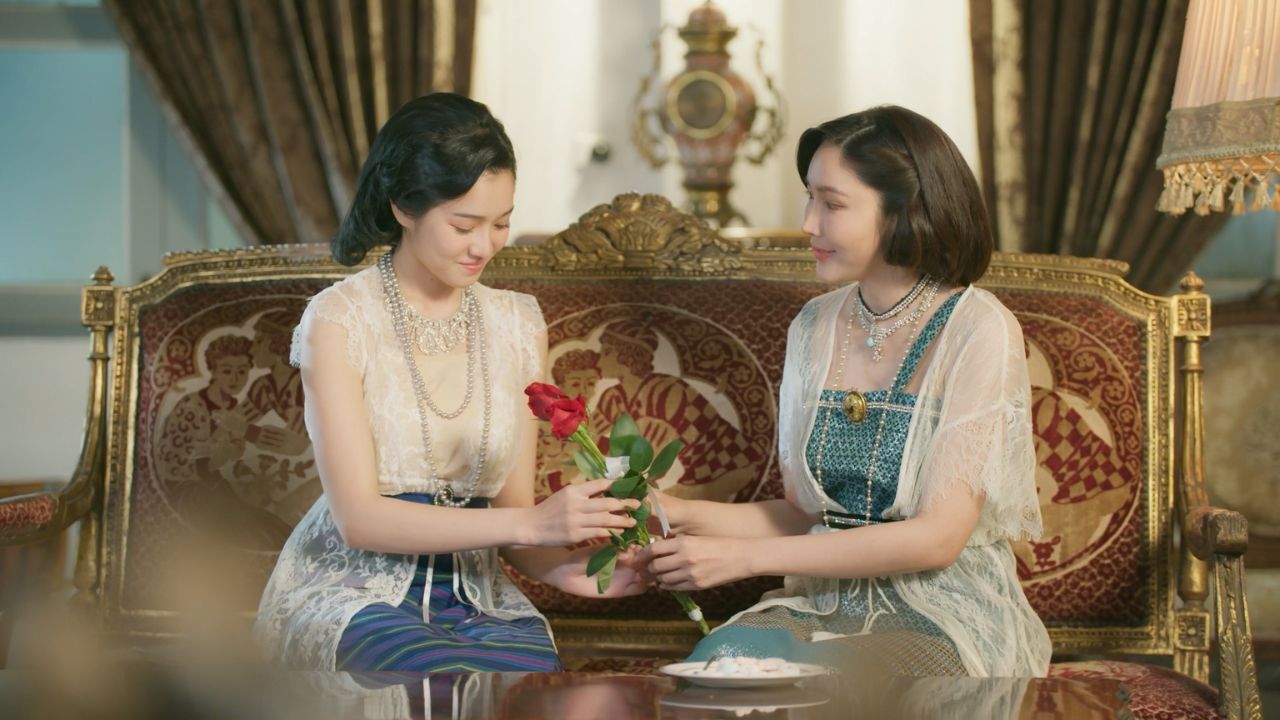
Note: This article contains light spoilers
I’m Your Moon The Series opens with a haunting contrast. In 1913, during the Buddhist year 2456, two princesses fall in love. Their love grows under the shadow of tradition.
This love is not silenced by lack of feeling, but by status and social rules. These women are more than lovers. They are symbols. One becomes the Sun, radiant and distant. The other is the Moon, always circling but never close enough.
Over a century later, in 2021, their souls return as Earl and Prey. These two women carry the emotional weight of a love that history never erased. The past does not disappear. It lingers and echoes.
The story connects both lifetimes through reincarnation and subtle parallels. This blending of timelines invites the audience to reflect. How has society changed? Have old barriers vanished, or only taken new forms?
Flashbacks appear often throughout the series. Some feel poetic and rich with meaning. Others interrupt the flow. Whether they add value or break the rhythm depends on what the viewer wants, emotional connection or clarity in time.
By weaving two timelines, I’m Your Moon The Series raises a timeless question. Can love that was once denied finally find peace in another life? And if that peace is possible, how much of the past must return to make healing real?
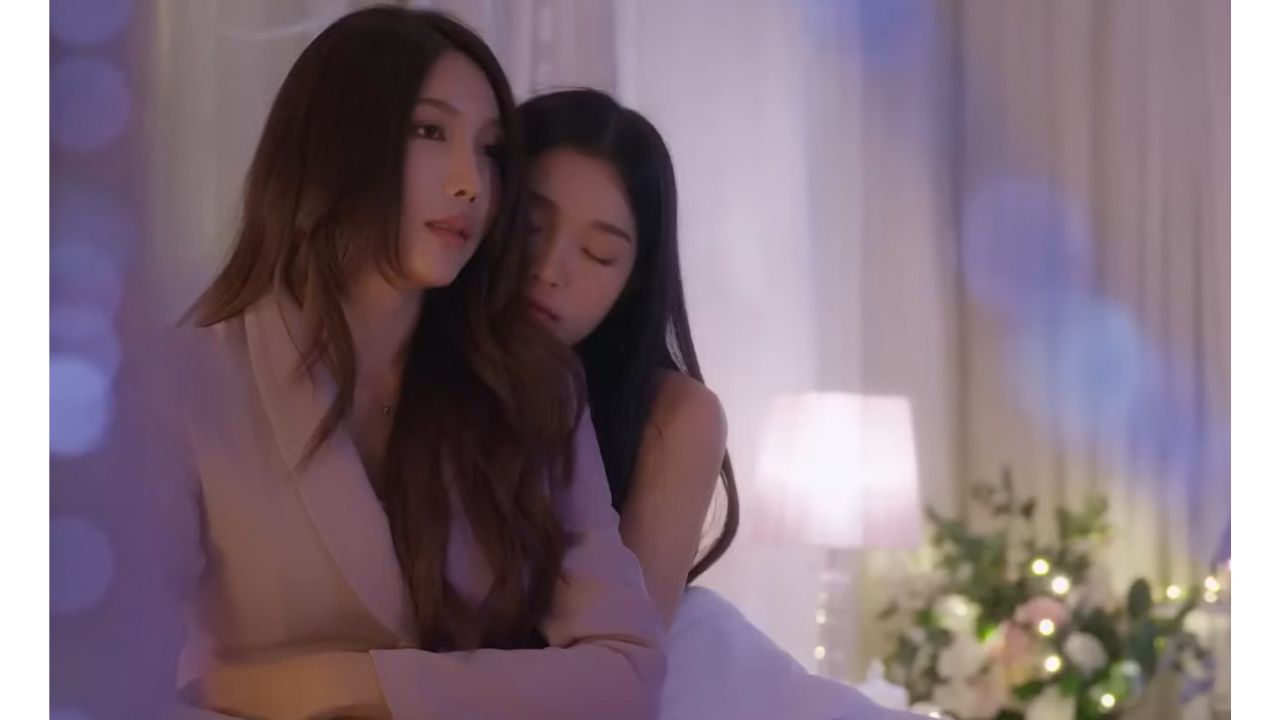
Table of Contents
- Love, Lies, and Liquor: Why Must Queer Intimacy Be Intoxicated?
- Prey Is a Green Flag But Even Green Flags Need Roots
- Earl’s Emotional Whiplash: Character Arc or Confused Writing?
- I’m Your Moon The Series and the Thai GL Drama Formula
- Three Queer Couples, One Real Standout: Tian & Milinth Deserved More
- From Forbidden Love to Family Acceptance: Then vs Now
- Comfort Food or Plot Contradiction? Let’s Talk About That Cooking Competition
- Too Big for Eight Episodes: What Got Rushed and What Got Lost
- The Loyal Pin Comparisons: Fair or Flawed?
- A Premise That Outshines Its Execution
Love, Lies, and Liquor: Why Must Queer Intimacy Be Intoxicated?
A particular moment in the series calls for reflection. It is neither romantic nor transformative. Instead, it feels uncomfortable.
One of the lead characters is clearly intoxicated during their first intimate scene. As the story builds toward emotional connection, the moment of closeness happens when consent feels unclear. Alcohol and confusion cloud the scene.
This issue is not new. Queer media, especially lesbian storylines, often repeat this trope. Drunken intimacy shows up across many genres. It feels as if vulnerability must be forced through altered states.
Queer love stories are still fighting for deeper and more equal representation. When alcohol is used to trigger physical affection, it feels like a step backward. It suggests intimacy cannot happen without outside influence.
That brings up important questions. Why must queer desire be shown this way? Is it fear of showing raw emotion, or just an attempt to create more drama?
This choice leaves a mark. What could have been a powerful moment of connection becomes an ethical concern. The emotional development built over time starts to feel weaker.
I’m Your Moon The Series had the chance to treat intimacy with care and intention. The base was strong. But when the key moment relies on blurred judgment, the story loses emotional strength.
Queer romance deserves better. It deserves clarity, respect, and truth, especially when it matters most.
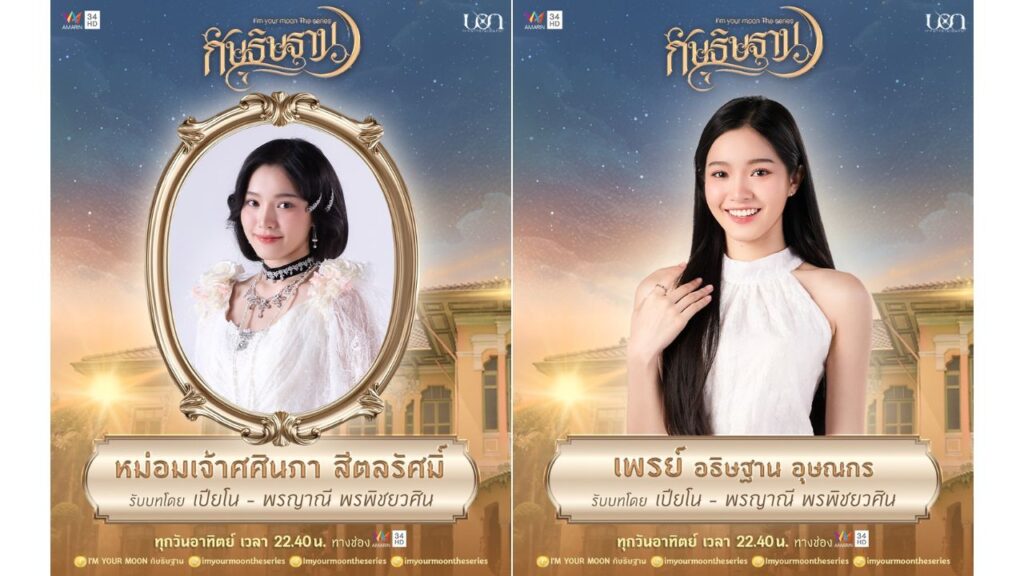
Prey Is a Green Flag But Even Green Flags Need Roots
At first glance, Prey stands out as one of the most emotionally intelligent characters in the series. Sincere and introspective, she is unafraid to question the world around her.
She wonders why family resentments still linger and challenges unspoken rules. Most memorably, she asks a question that stays with the viewer: “Do we need a reason to love someone?”
The line sounds simple, but its meaning runs deep. From a phenomenological view, especially in Husserl’s terms, feelings come before understanding. We sense before we interpret. In that sense, Prey is not naive for trusting her emotions. She is in touch with reality in a way many are not.
But maturity is not the same as stability. Prey’s emotional openness becomes both a strength and a weakness. Her sincerity makes her vulnerable. At times, she shifts easily when others push or pressure her.
She has strong values, yet still lacks the confidence to hold her ground. That uncertainty shows up more than once.
In I’m Your Moon The Series, Prey reflects the experience of many young queer women. She is open-hearted, but her boundaries are still taking shape. She wants to understand others and be understood herself. That makes her easy to relate to, but also emotionally fragile.
A green flag might suggest safety. But without roots, it can still bend with the wind. Prey shows us that growth is not about being right all the time. It is about learning how, and when, to stay grounded.
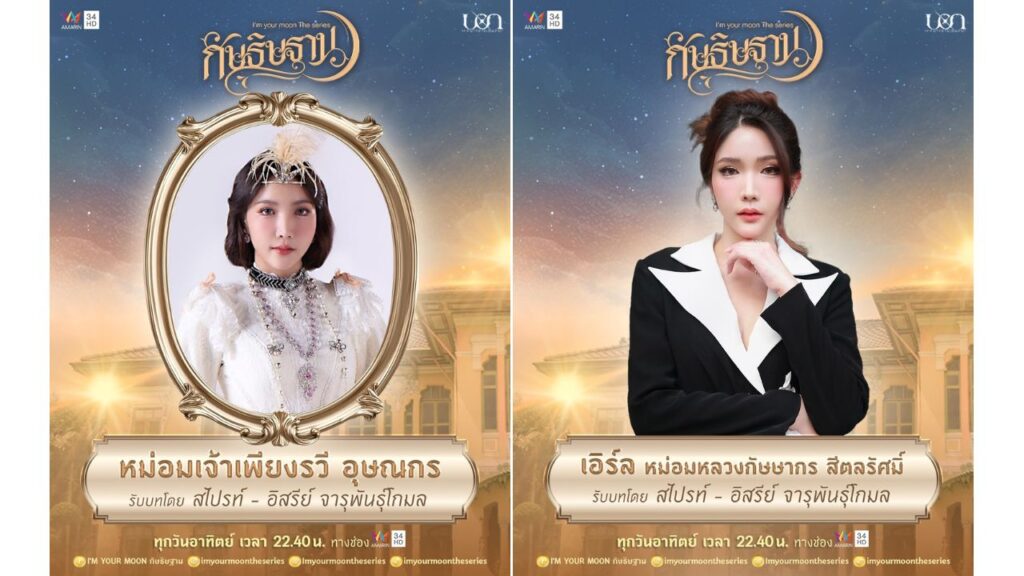
Earl’s Emotional Whiplash: Character Arc or Confused Writing?
Earl is caught between cultural pressure and personal truth. Throughout the series, she tells Prey more than once that they cannot be together. Yet not long after rejecting her, she shows deep concern. She becomes physically affectionate. Eventually, she enters a relationship with her.
These emotional shifts happen quickly. Too quickly for the feelings behind them to feel fully real. Sometimes her words say no, while her actions say yes. This tension between what she says, does, and feels becomes hard to ignore.
There is no doubt Earl is struggling inside. Her family’s expectations weigh heavily on her. The idea of marrying a man, following tradition, and winning her parents’ approval shapes much of her fear.
Still, the viewer is left wondering. Is her inner conflict explored with the depth it needs? Or is it simply used to explain her inconsistent behavior?
In I’m Your Moon The Series, this disconnect becomes clearest when Earl moves from denial to confession in just a few episodes. One day, she says she does not love Prey. Days later, they are together.
Where is the emotional bridge between these moments? Without time for her growth to unfold, her choices feel rushed. Instead of deep character work, we get a quick fix.
That raises a larger question. Is Earl a complex character in progress? Or is she suffering from poor development? If the goal was to show emotional chaos, it needed more space and care to feel real.
In the end, the sudden shifts weaken her arc. They leave the audience unsure. Should we connect with her, or simply feel confused?
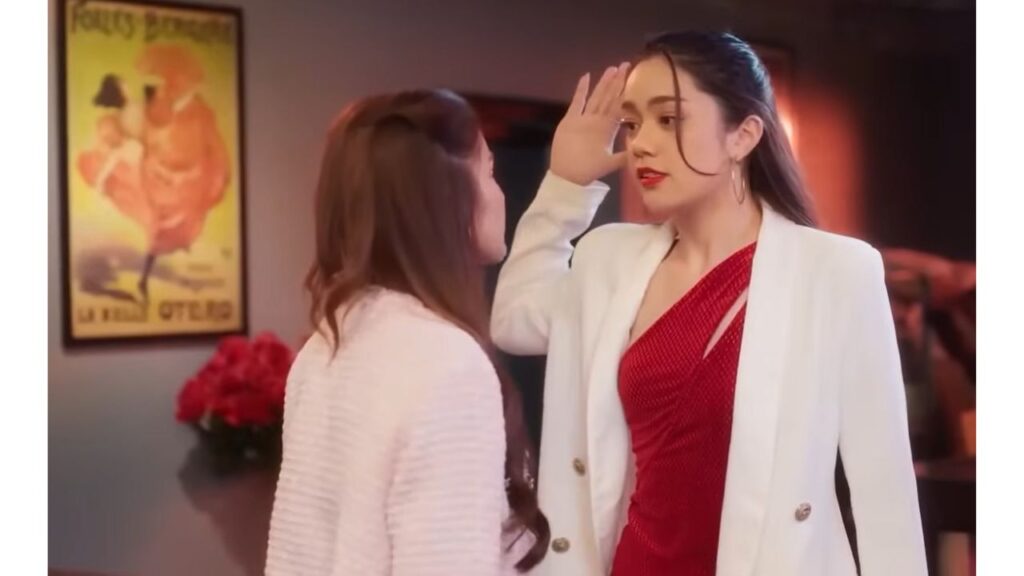
I’m Your Moon The Series and the Thai GL Drama Formula
Thai GL dramas have a distinct style. They mix emotional intensity with unpredictability. I’m Your Moon The Series follows this tradition. However, it raises important questions. Repetitive scenes like slapping, sudden accidents, and emotional breakdowns happen often. Instead of adding depth, these moments feel like filler.
Drama is not the problem itself. Emotional ups and downs are part of storytelling. The issue is when these moments are not earned. A slap becomes a tired trope, not a turning point. There are at least three slapping scenes. None push the story forward. They shock but do not change anything.
The last-minute accident is similar. The boat incident appears late in the plot. It feels like a forced way to wrap up emotions. Could dialogue or reflection have done the same? Probably yes. Drama works best when it grows from characters’ choices, not external events.
Using these common tricks, the series loses some uniqueness. This formula may please fans expecting these moments. Yet, it limits how far the story can go. I’m Your Moon The Series could have broken the mold.
If the story aims to be a deep love tale across time, the emotions must come from the characters themselves, not forced events.
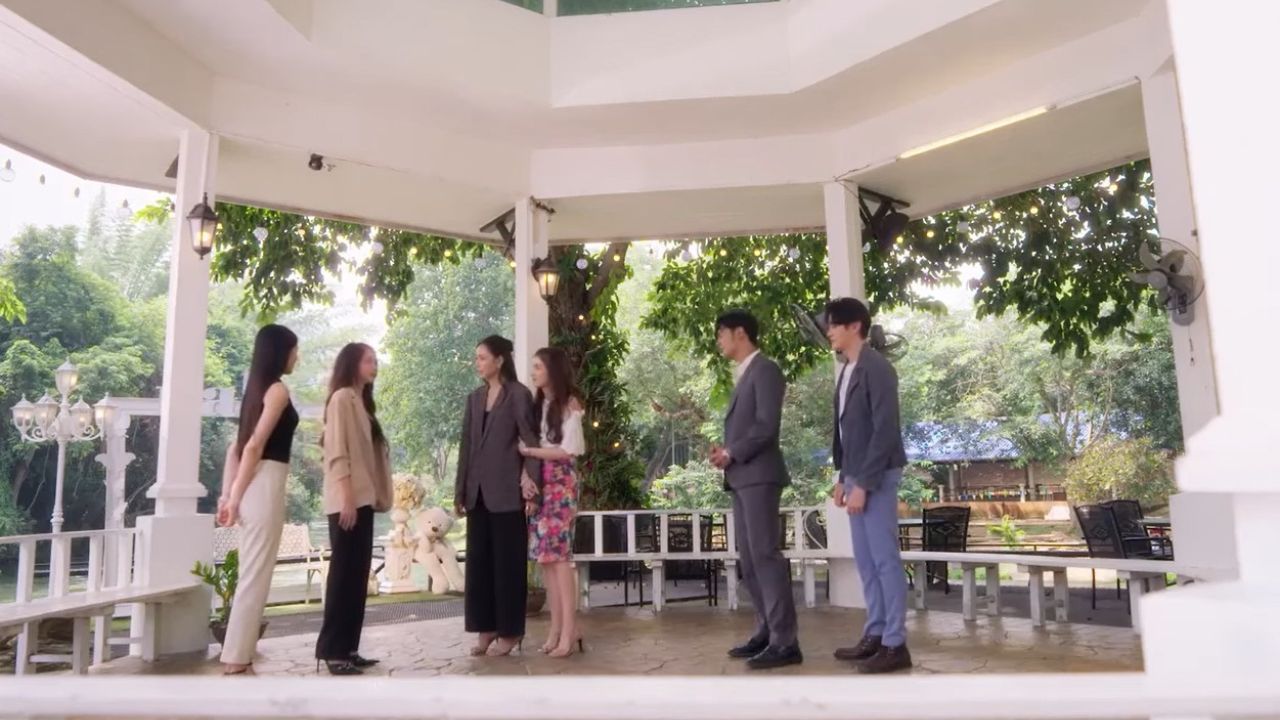
Three Queer Couples, One Real Standout: Tian & Milinth Deserved More
Subplots often make or break a series. In this case, the romantic subplots carry surprising emotional weight. I’m Your Moon The Series is not just about Earl and Prey.
It offers a wider queer universe, where three couples navigate love, pain, and connection in their own ways. Among them, one couple quietly steals the spotlight: Tian and Milinth.
Tian is magnetic. She protects the people she loves, speaks her mind, and radiates emotional strength. There is a softness in the way she looks at Milinth, a kind of love that does not need explanation.
Her presence feels grounded and reassuring. Milinth complements her with elegance and calm. Together, they balance each other. Their relationship is not just chemistry, it has substance.
Unlike the main couple, Tian and Milinth show what emotional consistency looks like. They face challenges too, but their story flows with a sense of maturity. It is easy to imagine a full series focused only on them. Their scenes leave an impression. The emotional depth between them suggests that love can be powerful even without chaos.
The third couple, Andy and Kanthir, adds another layer to this universe. Though their screen time is limited, they still offer a glimpse into another queer experience.
They represent joy, playfulness, and tension in different ways. All three couples matter, but Tian and Milinth deserve more. Their story was not just background, it was a missed opportunity for something bigger.
I’m Your Moon The Series could have expanded this world even more by exploring these couples further. Instead, it leaves us imagining the stories that almost were.

From Forbidden Love to Family Acceptance: Then vs Now
Family acceptance stands as one of the most powerful themes in I’m Your Moon The Series. The journey from forbidden love to open support reflects not only personal growth but also broader social change.
The show takes care to explore how family dynamics evolve. It also shows how generational differences shape the acceptance of queer relationships.
Prey’s grandfather carries the weight of old prejudices. His arc unfolds across almost the entire series. This gives viewers time to witness his gradual shift from resistance to understanding. His transformation feels believable and well-developed.
In contrast, Earl’s parents change their stance almost overnight. Their sudden acceptance feels rushed. It creates a noticeable imbalance in the narrative.
One explanation might lie in age and perspective. The grandfather represents the older generation. He is more conservative and slower to change.
The show gives space to his transformation, which adds emotional weight. Earl’s parents, on the other hand, are younger and likely more open-minded. They reflect a society that is evolving faster.
Their quick acceptance could symbolize hope for a more inclusive future. Still, the contrast between arcs creates uneven storytelling.
Beyond the characters, this difference reflects real tensions in Thai society. Acceptance of LGBTQ+ people remains uneven. It often depends on age, social circles, and family background. The series captures this contrast well. It shows how deep-rooted biases can remain, even when younger generations push forward.
This theme gives the series its emotional grounding. It links individual stories to larger cultural shifts, making the narrative both personal and socially relevant.
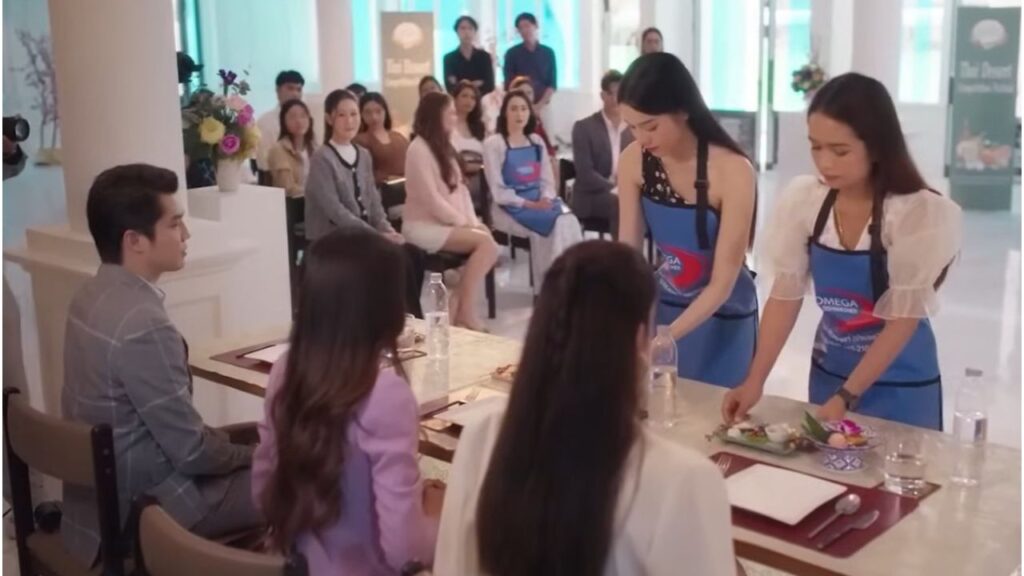
Comfort Food or Plot Contradiction? Let’s Talk About That Cooking Competition
One of the most puzzling moments in I’m Your Moon The Series occurs when Prey’s family organizes a cooking competition to cheer her up. At first, this idea feels heartwarming. It seems like a sweet attempt to bring joy and comfort.
However, the mood shifts when they invite the very person who broke Prey’s heart. This choice makes us question whether it was a script oversight or a deliberate reflection of the characters’ emotional complexity.
From a storytelling perspective, this moment challenges narrative coherence. If the family truly wants to support Prey, why include someone who caused her pain? This inconsistency raises doubts about the writing process. Was it a mistake that slipped through, or does it reveal a deeper emotional struggle within the family?
Another way to see it is as a raw portrayal of complicated relationships. Families do not always act logically, especially when strong emotions are involved. Sometimes, love comes mixed with denial or wishful thinking.
Maybe the family hoped for reconciliation. Perhaps they believed that seeing this person could help Prey heal. Still, this interpretation requires viewers to make significant leaps, which can feel unsatisfying.
I’m Your Moon The Series has moments where plot decisions clash with character motivations. Sometimes, this adds realism. But here, it risks breaking emotional engagement.
This scene needs a clearer purpose or stronger development. Otherwise, it feels like a contradiction rather than a genuine act of support.
In the end, the cooking competition could have been a tender highlight. Instead, it sparks debate about the balance between emotional comfort and narrative coherence.
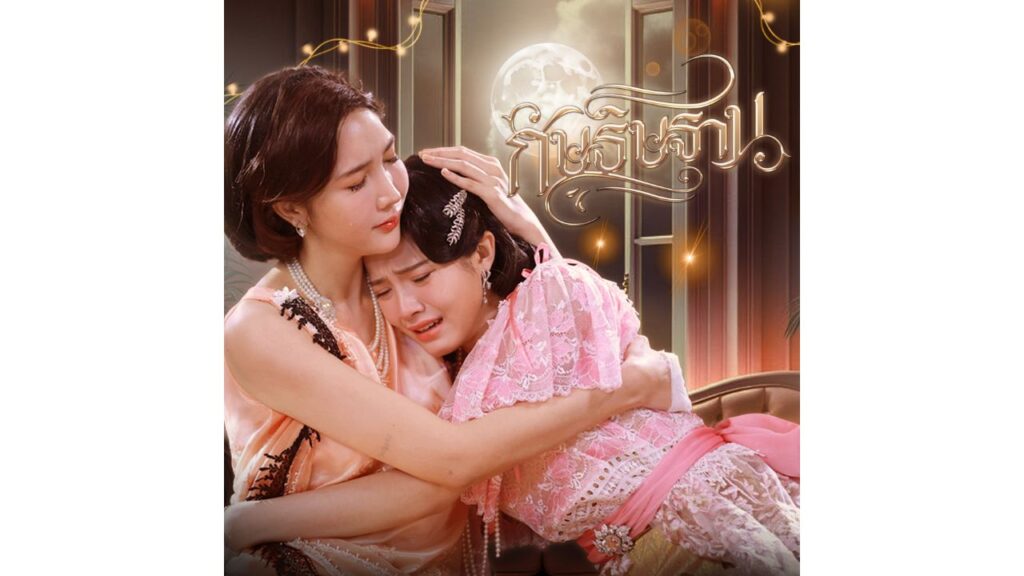
Too Big for Eight Episodes: What Got Rushed and What Got Lost
The story in I’m Your Moon The Series carries immense emotional weight and complexity. However, with only eight episodes, the series struggles to give its rich plot the time it truly deserves. We quickly sense pressure to wrap up intricate storylines, which leads to rushed resolutions and unanswered questions.
Episode five marks a clear turning point. Up to this moment, the narrative takes its time, carefully developing characters and building tension. After this midpoint, events accelerate dramatically.
Conflicts that once simmered quietly explode suddenly. Emotional arcs that begged for deeper exploration move forward without enough depth. This pacing shift leaves the audience feeling anxious and craving more.
Several characters feel underdeveloped due to this limitation. Prey’s emotional growth, Earl’s internal conflict, and the families’ evolving dynamics all deserve more screen time.
The rich histories behind their struggles remain mostly unexplored. This lessens the impact of their present-day decisions. Moments of vulnerability and connection often feel brief or glossed over.
Beyond characters, many core conflicts lose their complexity. The centuries-old feud between families, the weight of tradition versus modern acceptance, and the spiritual themes of reincarnation receive only surface treatment. These layers could have added profound meaning if given space to unfold naturally.
I’m Your Moon The Series sparks intrigue and emotional investment. Yet the short episode count leaves viewers feeling that something essential was lost in translation. With more episodes, the story could have breathed, grown, and resonated much more deeply.
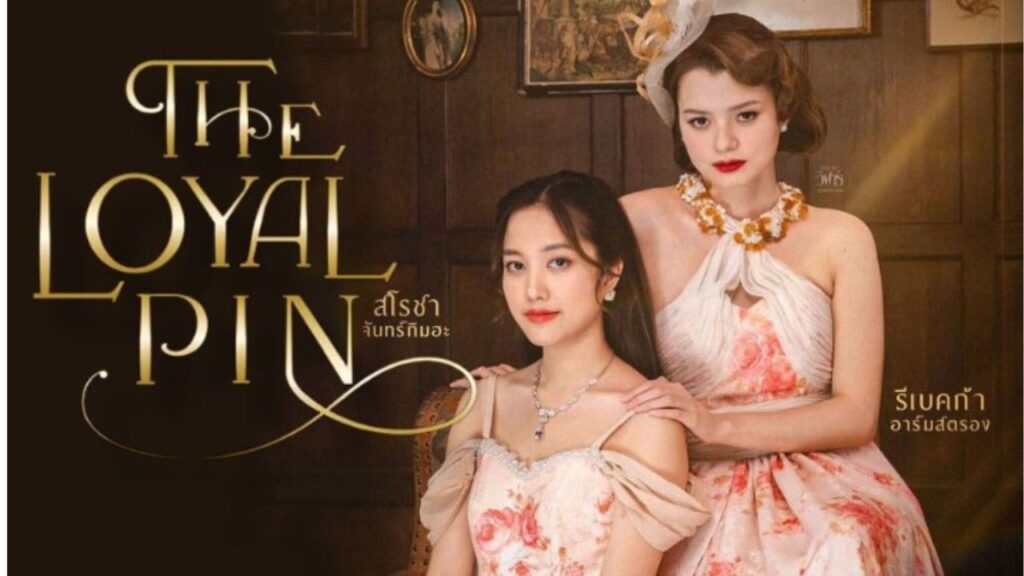
The Loyal Pin Comparisons: Fair or Flawed?
Comparisons between I’m Your Moon The Series and other popular GL dramas, like The Loyal Pin, are inevitable. Still, these comparisons often ignore key differences in budget and production scale.
The Loyal Pin benefits from a larger budget. This allows for higher production quality, elaborate sets, and more polished effects. Naturally, these factors shape how viewers experience the story and what they expect.
Both series explore similar themes: forbidden love, family acceptance, and identity struggles. However, their executions differ significantly. The Loyal Pin flows with smoother pacing and refined storytelling.
Meanwhile, I’m Your Moon The Series feels rawer and sometimes uneven. Yet, it carries its own charm. The series is grounded in heartfelt performances and sincere storytelling.
It is important to evaluate each GL series on its own terms. Holding I’m Your Moon The Series to the standards of bigger productions can undermine its unique strengths. Every series is shaped by its context. Budget limitations, creative goals, cultural nuances, and available resources all influence the final result.
Similar themes do not mean equal execution. The Loyal Pin may stand out in visuals and direction. But I’m Your Moon The Series offers a more intimate, character-driven story that connects in a different way. Both add value to LGBTQ+ representation, though each invites a different kind of critique.
In the end, fair analysis respects the individual journey of each series. Without proper context, comparisons risk overlooking the real heart behind the story.
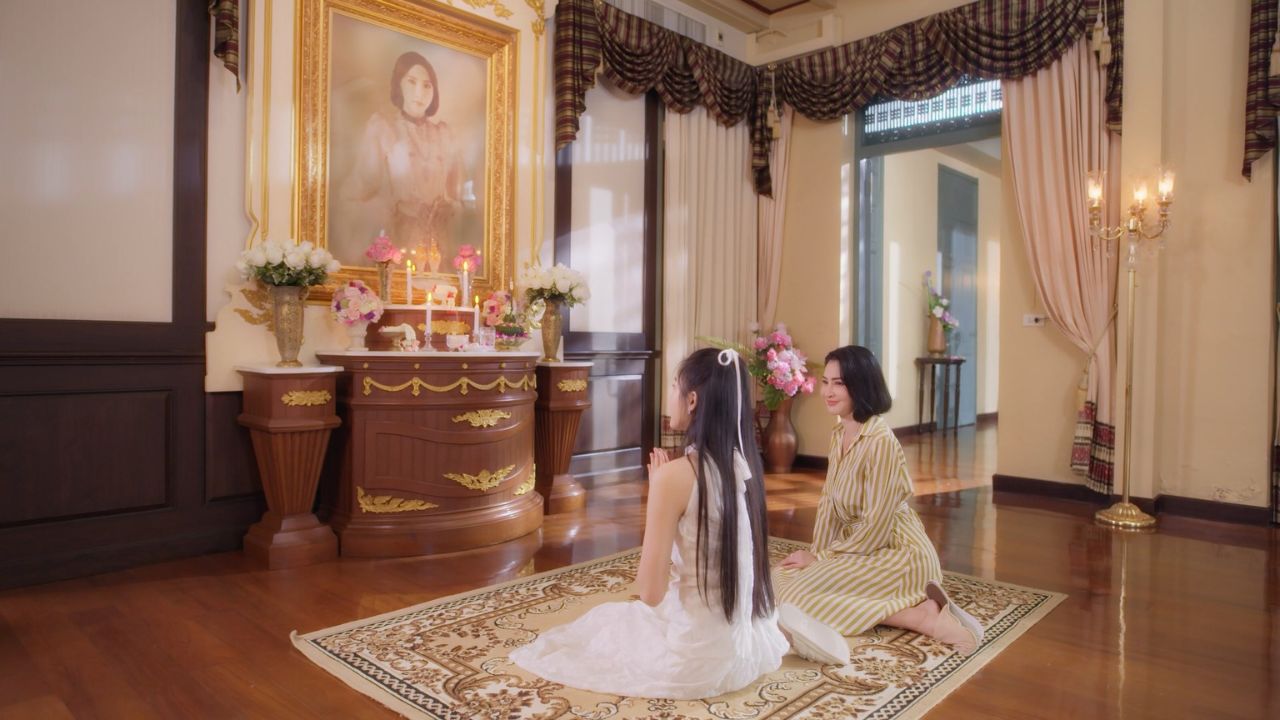
A Premise That Outshines Its Execution
The heart of I’m Your Moon The Series is its strong idea: a love meant to be that crosses time. It brings women together across different lives and challenges. This idea of love written in the stars feels poetic and touches viewers who want stories about deep connection.
Even though the show has some technical limits and a few script problems, the message stays strong. Some scenes feel shaky, and the pace sometimes feels fast. But the story beneath it all keeps you interested.
The series shows family acceptance, emotional openness, and the struggle against tradition. These themes give viewers a chance to think about personal feelings and social issues.
This show asks us to look past the polished look and value honest storytelling. The characters’ growth and struggles give the story its soul. It reminds us why representation matters, even if the show isn’t perfect.
I’m Your Moon The Series deserves your time not just for the romance, but for how it explores big ideas like identity, fate, and change in society. The story starts important talks about love, acceptance, and strength in the queer community.
So, after watching this story full of love and conflict, did you feel the moon’s pull? If yes, this series might be the emotional journey you want to take next.
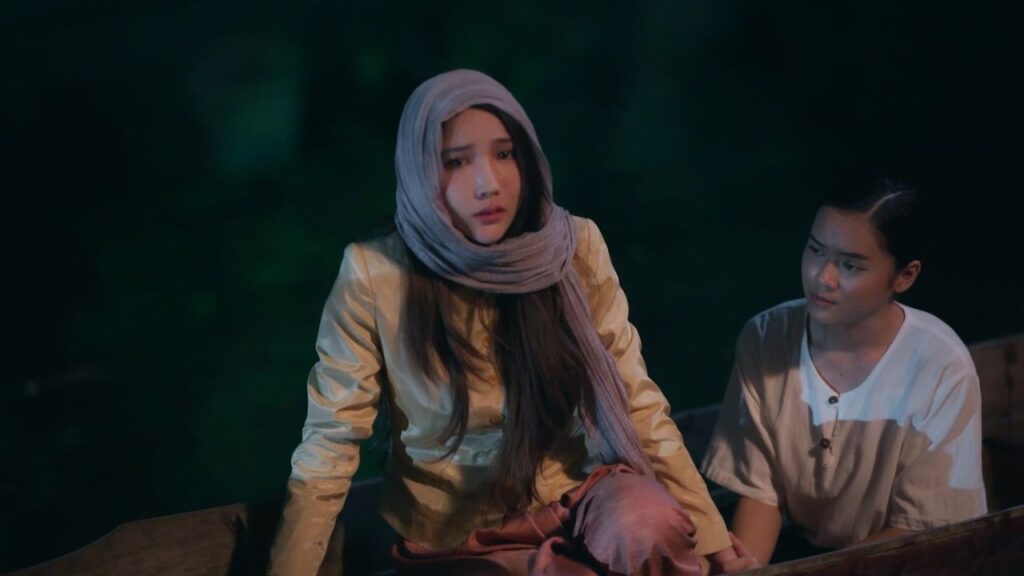
Featured image: Promotional still courtesy of U Entertainment.



